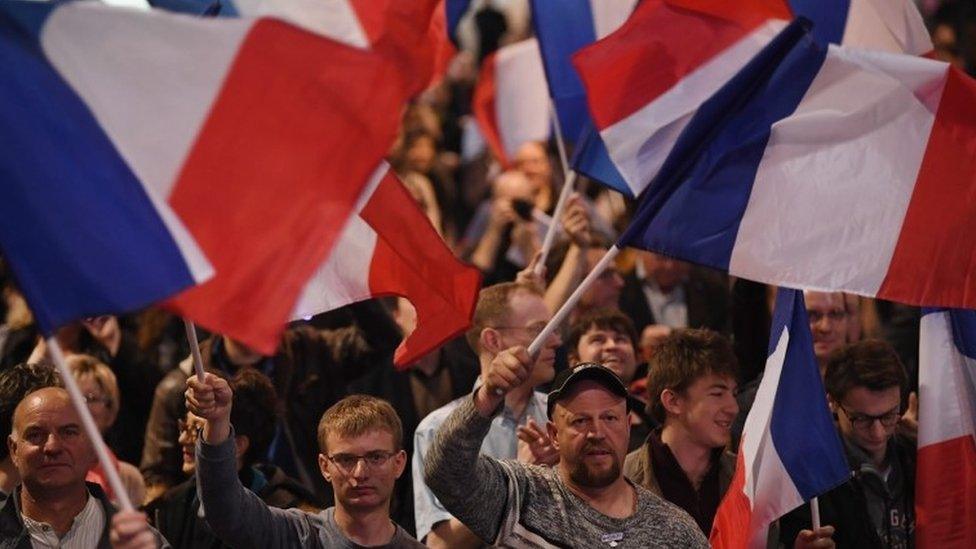French election: Macron targets nepotism as aides desert Fillon
- Published
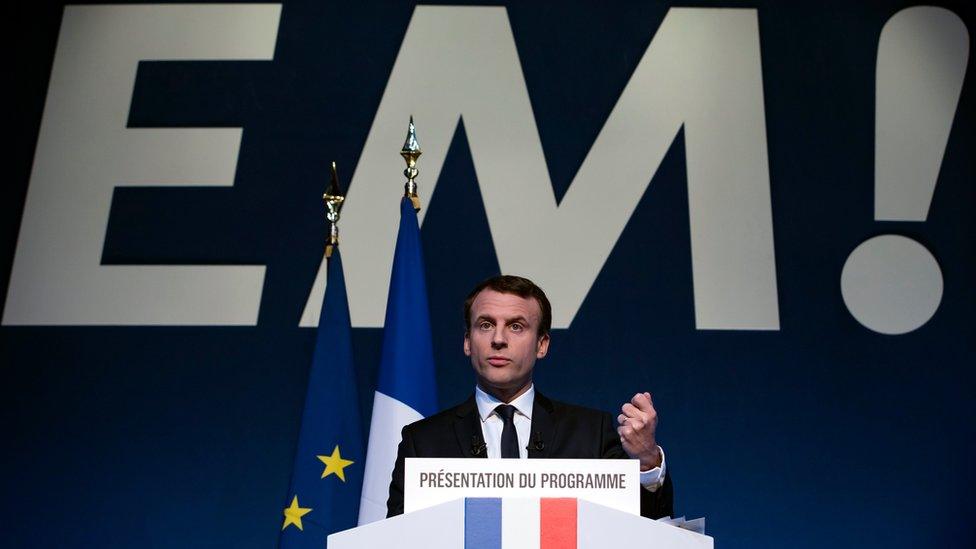
Mr Macron has vowed to eradicate "conflicts of interest"
French presidential candidate Emmanuel Macron has vowed to stamp out nepotism as staff abandon his rival Francois Fillon over an investigation into payments to his wife.
Unveiling his manifesto, the former banker said he would ban politicians from employing relatives.
Mr Fillon has lost key staff, and some senators have demanded a new candidate.
Polls suggest Mr Macron will face Marine Le Pen of the far-right National Front in the second round of voting.
Mr Fillon, of the Republicans party, had previously led the opinion polls but his popularity has been hit by allegations - now being investigated by a judge - that he paid his Welsh-born wife Penelope hundreds of thousands of euros for work she did not carry out.
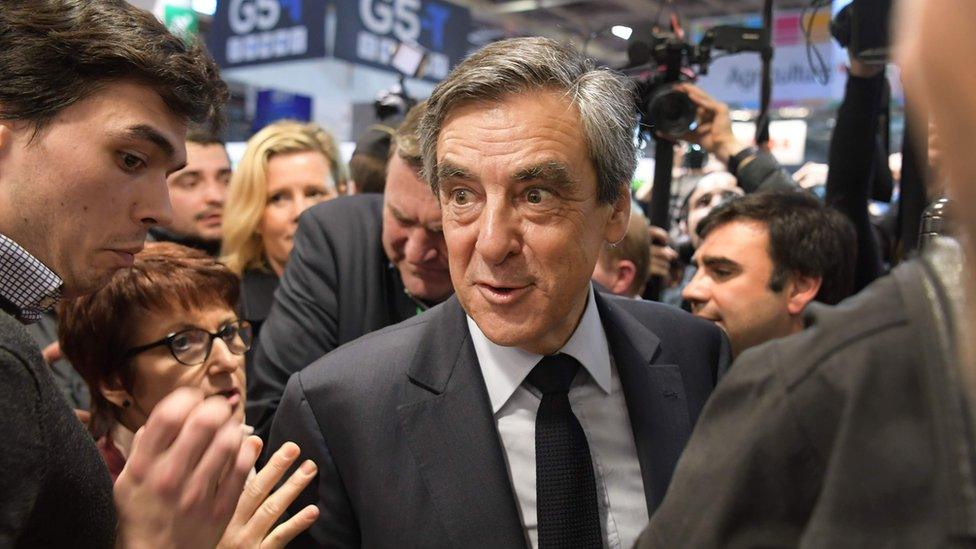
Mr Fillon is being investigated over payments to his wife
On Wednesday Mr Fillon refused to end his campaign and complained he was the victim of a "political assassination". That led to the resignation of Mr Fillon's foreign affairs spokesman, Bruno Le Maire.
And his campaign suffered new setbacks on Thursday, with the resignation of the deputy campaign director, Sebastien Lecornu, and adviser Vincent Le Roux, along with a number of more junior staff.
The centrist UDI party announced on Wednesday that it was suspending its support, pending a final decision next week.
'Spirit of conquest'
Unveiling his manifesto, Mr Macron also said he would reduce the number of parliamentary seats and introduce term limits on elected members to "eradicate conflicts of interest".
Mr Macron, who is fighting his first election campaign, does not have a political party and describes his "En Marche" organisation as a movement.
He said he wanted France to rediscover its "spirit of conquest" and set out policies to tackle unemployment, abolish residence tax for most French households and make retirement conditions the same for everyone.
Other policies in the manifesto, external (in French) include banning the use of mobile phones in primary and secondary schools, forcing big internet companies to pay tax on their business activities in France and cutting corporation tax to 25% from its current level of 33.3%.
He told reporters he would sell up to €10bn ($10.6bn; £8.6bn) worth of government shares in large companies in which the state does not hold a majority.
There were also plans to tackle social exclusion in poor immigrant suburbs. Mr Macron said he would reduce school class sizes, set up grants to help young people find jobs, incentivise companies to hire them and improve relations between young people and the police.
Mr Macron called for an international "roadmap" to fight Islamic extremism in the Middle East and Africa and said he would increase military spending to 2% of GDP, as the US and other Nato allies have demanded.
He described Africa as the global region that presented the "greatest risk and opportunity" to France.
He also said the remaining 27 EU member states had to defend the single market in Brexit talks. He urged efforts to reinvigorate the eurozone and called for closer European co-operation.
Ms Le Pen has said she wants to pull France out of the euro, but not the EU.
The first round of the French presidential election will be held on 23 April. If no candidate wins more than 50% of the vote a second round between the two top candidates will be held on 7 May.
- Published24 April 2017
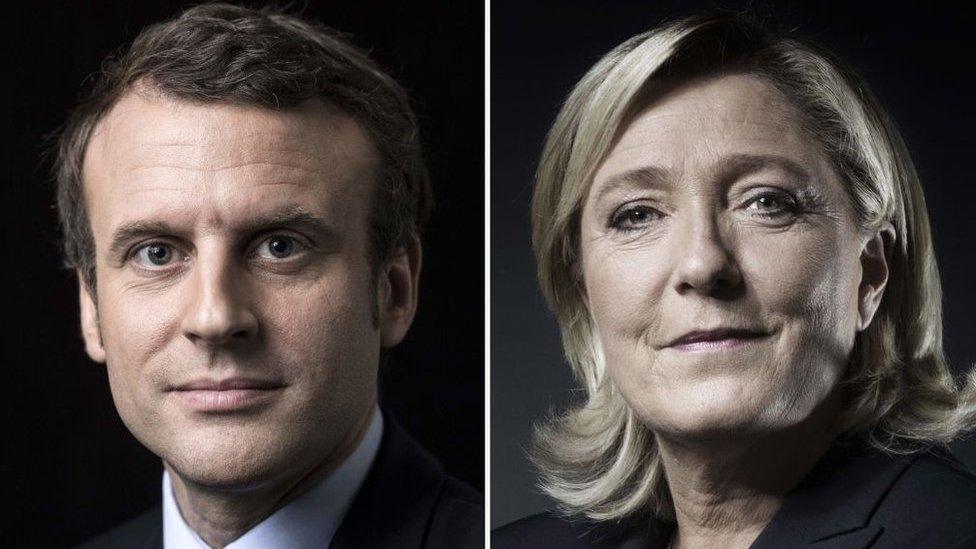
- Published29 March 2017
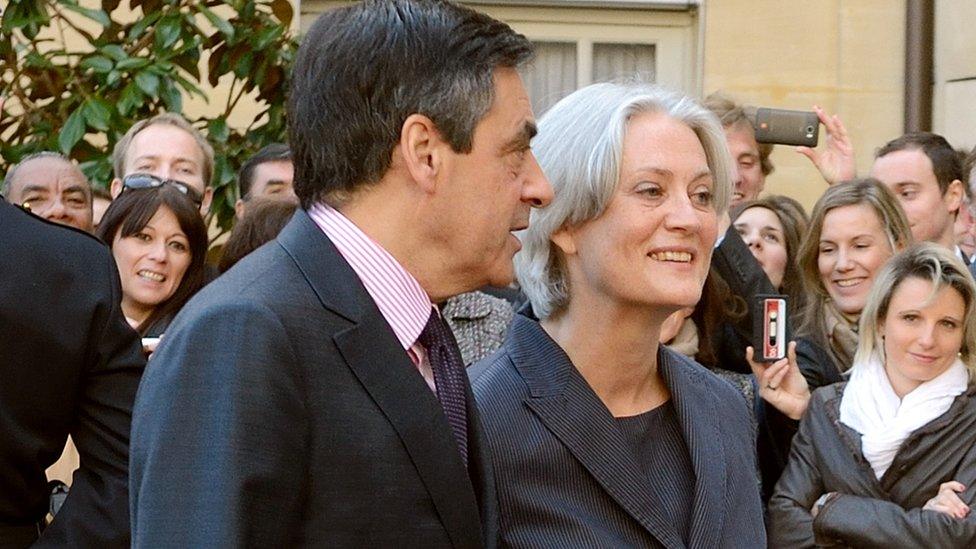
- Published1 March 2017
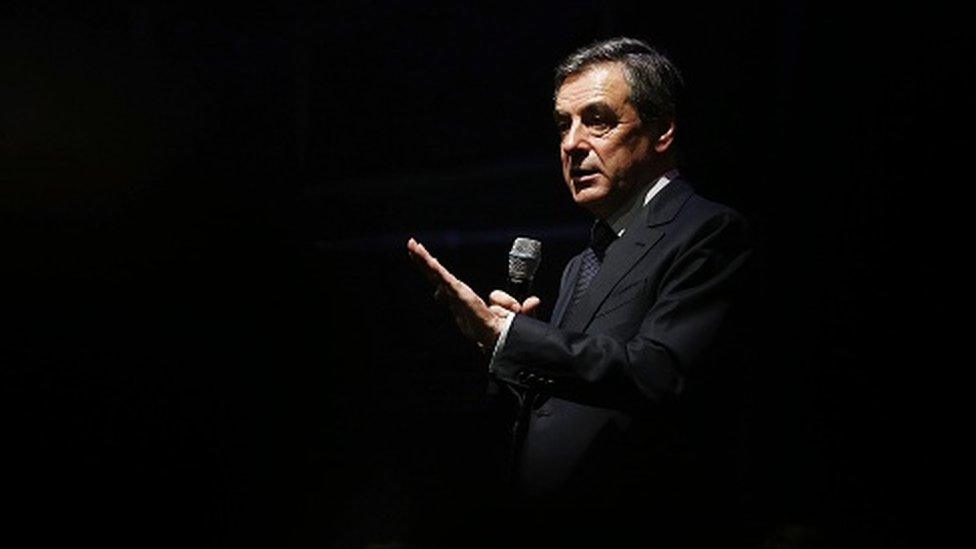
- Published3 May 2017
